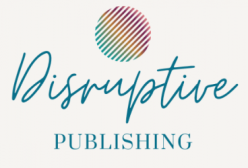
Let’s talk about forming new writing habits. We all have times in our lives where we intentionally want to change a behaviour for the better and create a new habit for ourselves.
This could be getting into the habit of eating healthier and drinking more water. Or it could be moving more and taking the dog for a daily walk. Or it could be work related, or spiritual, or…let’s face it. There are so many areas in our lives that could be improved and made easier if only we created new, and better, habits.
Getting into the habit of doing something is often easier said than done and we seem to acquire bad habits without any effort but getting into a “good” habit can be a little more challenging. Why is that I wonder?
Anyway…let’s break this down into a three-step process that makes it easy to follow until we’ve internalised the new behaviour and made it a true habit – something we do automatically without having to think about it.
1. Decide What You Want To Do
The first step is obviously to decide what you want that new habit to be. Be as specific as possible. Don’t just tell yourself you want to write more. Instead say something like “I will write for 30 minutes every single day”, or “I will write 500 words every weekday”.
Deciding what your new habit will be and committing to when and how you’re going to do it, is half the battle.
2. Remind Yourself To Get It Done
The next few days should be smooth sailing. You’re motivated and excited to get this done. Sticking to your new habit isn’t an issue. But a few days in you’ll notice that it’s easy to slip back into old habits.
Maybe you’re tired or you don’t feel inspired to write. Or maybe you find your day just gets away from you. This is when it’s important to have a daily reminder. Set an alert on your phone or add the new habit to your daily to-do list for a while.
3. Make It Part of Your Routine Until It Becomes A Habit
Which brings us to the last step. It takes some time before a new behaviour becomes a true habit. Until then, a routine will work to your best advantage. Even before the new behaviour becomes automatic, a routine will help you get it done without having to use a lot of willpower or rely on daily reminders.
Make that daily writing session part of your after dinner routine, or get up a little earlier in the morning to get your word count done. The important thing is that you make it regular so that it has the chance to become a habit. It’s going to be good for you afterall.
The Benefit of a Routine and Habit-Filled Day
Have you ever noticed that it gets harder to make decisions toward the end of the day? You’re too tried to figure out what to have for dinner or what to watch on TV. That’s because we all have a finite and varying amount of brainpower on any given day. It’s called decision-making fatigue.
Knowing that helps us prioritise. We can actually cut out a lot of decision-making fatigue by implementing habits and routines. That way we save our brainpower for other important stuff.
Doing this also frees brain space for more creative and productive thinking. Imagine what your writing might be like if you are feeling lighter and more creative. Routines are a great tool that simplify our lives and cut out a lot of our daily stress.
Chances are you already have a morning routine. You get up, get your coffee, check your email and eat some toast before heading into the shower.
Now what if we got up just a little bit earlier and started our day with a meditation, followed by some writing – just 30 minutes to begin with – before we started checking our emails.
I’ve talked before about having a sacred writing space to go to so you don’t have to think much about it. You just have to show up and start writing.
I encourage you to think about other areas of your life where you can simplify and implement some routines like meal planning, wardrobe planning and cleaning schedules, to free up space in your brain for creative writing.
Maybe you can delegate some tasks to free up your routine further.
And wrap your day up with a bedtime routine that not only helps when you’re too tired to make smart choices, it also helps you fall asleep more easily. What works for a toddler will work for you as well.
Sit down with a pen and piece of paper and think about what parts of your day and week you can batch or turn into routines. Create daily to-do lists for yourself until you’ve established new habits and routines that work better for you.
Then see how much more writing you get done and how much better your writing is.
That’s it from me for this week. I hope this will be helpful to you.
If you would like support while you write your book, consider joining our Authorpreneur’s Bootcamp where we teach authors everything they need to know about writing, publishing and promoting their books. Go to disruptivepublishing.com.au/jointheclub to find out more about how to join us. We’d love to see you in there.
If you’re not sure and you’d like to book in for a FREE Information Call, you can go to calendly.com/disruptivepublishing/freeinfosession and we can talk about your options and work out what is the best way forward for you.
Or, if you have an idea for a compilation project, tell us about it. We might be able to work together. Email: deb@disruptivepublishing.com.au
Authorpreneur’s Bootcamp
Have a great week everyone and I will see you soon.
Bye for now.
